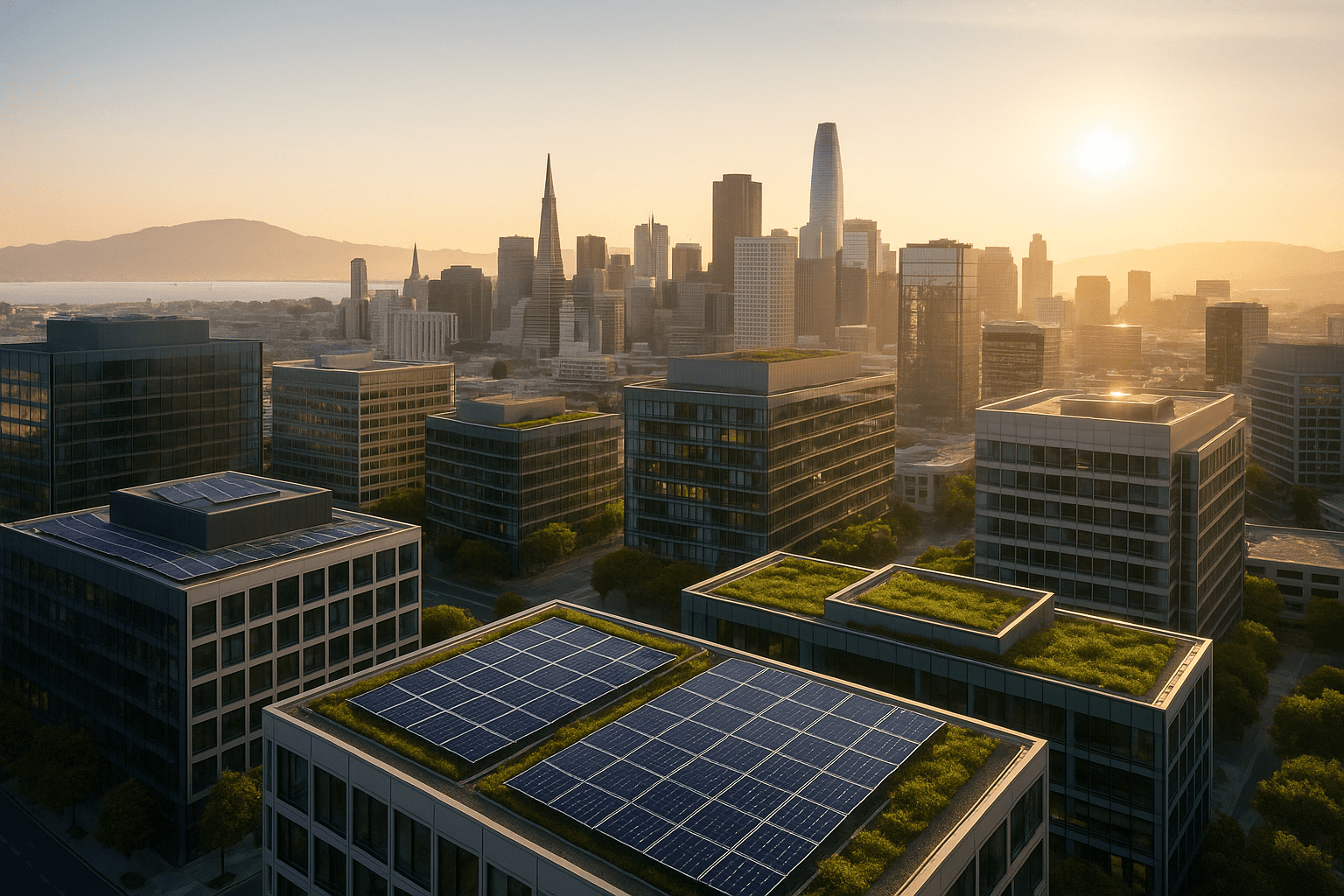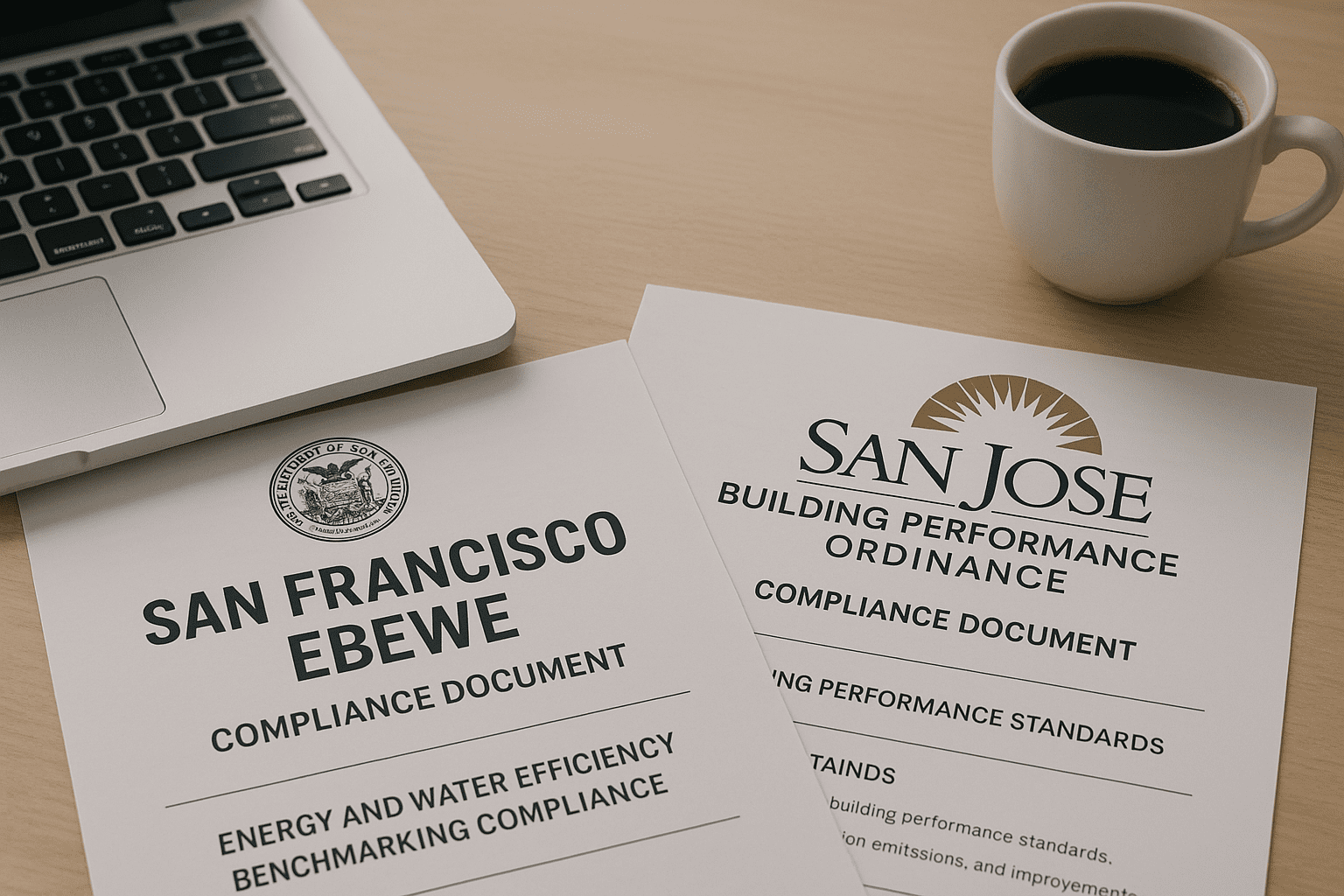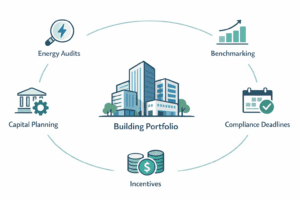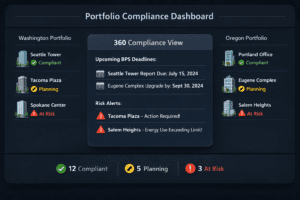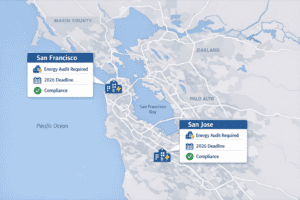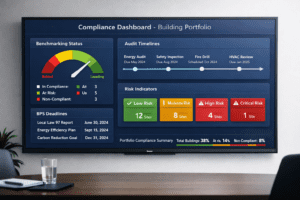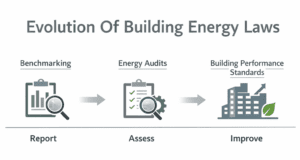Why You Can’t Wait Until The Last Minute
In both cities, building performance deadlines will soon require proof that your property meets energy efficiency standards. These aren’t simple tasks you can tackle last-minute. From hiring a certified professional to collecting data and preparing compliance documents, the process takes time (often several months).

In this article, we’ll explain why Bay Area property owners need to start energy audits now for 2026 deadlines, what to expect from the process, and how early action can help you avoid fines, delays, and rushed decisions.
2026 Audits For SF & SJ Will Take Time
The biggest misconception for energy audits? Energy audits are quick, one-time checks.
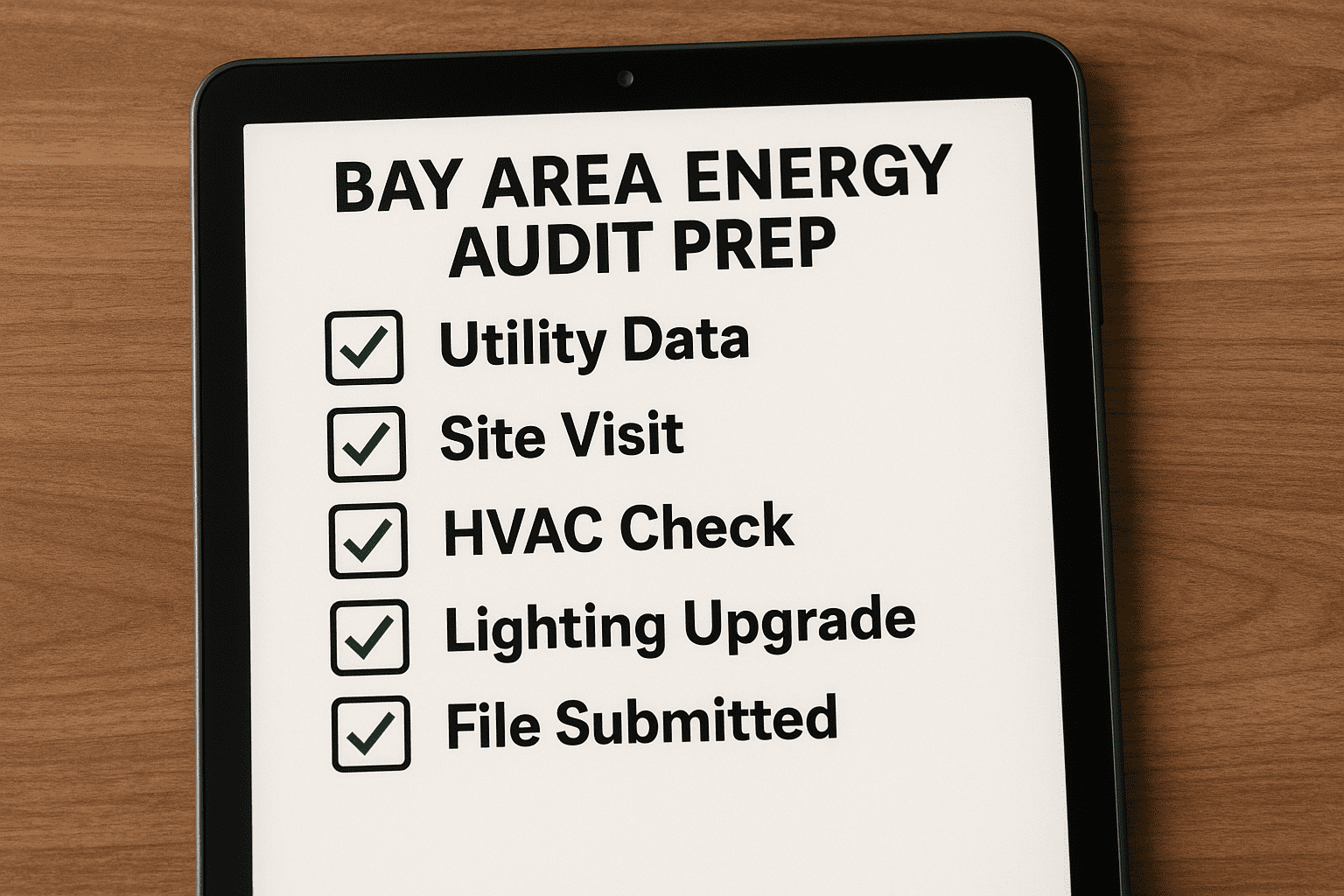
A full commercial energy audit can take 3–6 months, especially for large buildings. Why? Because it’s not just a walk-through. Audits require:
💡 Data Collection
Data collection from utility bills
🏢 On-Site Inspections
On-site inspections by licensed professionals
📊 Benchmarking
Benchmarking against local energy standards
🧾 Reporting & Compliance Filing
Follow-up reporting and compliance filing
In San Francisco, these audits are required under the Existing Buildings Energy Performance Ordinance (EBEWE). In San Jose, building owners must meet Clean Energy Community ordinances tied to benchmarking and disclosure rules.
If you wait until Q4 2025 to book your audit, you may not get a slot in time. And even if you do, you risk rushed work, errors, or incomplete filings.
Why Q1 Backlog Delays Happen
Every year, there’s a rush in Q1 and Q2 as building owners scramble to meet city deadlines. The result? Scheduling backlogs, missed appointments, and rising costs.
This happened in both LA and New York as building performance deadlines ramped up. Bay Area building owners can expect the same.
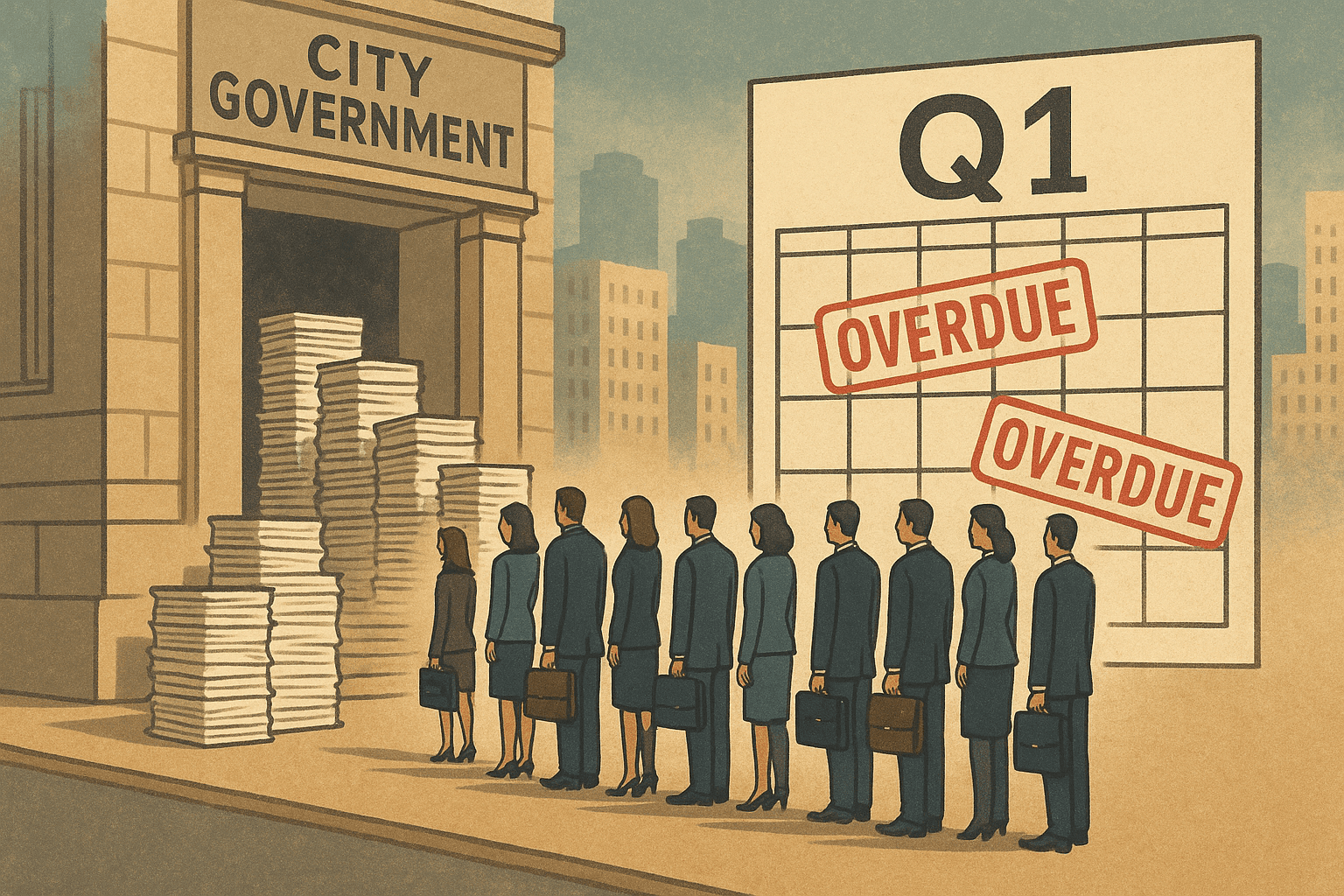
When everyone tries to book at once:
- Auditors are booked out 3–4 months in advance
- Compliance filings get delayed
- Prices go up due to demand
- Rush jobs lead to errors and fines
By starting now, you stay ahead of the crunch. Acting early means you can get better pricing, more scheduling flexibility, and more time to correct issues if needed.
What SF & SJ Require for 2026
Both San Francisco and San Jose have commercial energy mandates. While the rules differ slightly, the process is similar:
San Francisco (EBEWE Program)
- Applies to buildings ≥10,000 sq. ft.
- Requires Energy Benchmarking annually
- Requires Energy Audit or Retro-Commissioning every 5 years
- Next major compliance year: 2026
San Jose (Building Performance Ordinance)
- Applies to commercial buildings ≥20,000 sq. ft.
- Requires benchmarking and public disclosure
- Annual compliance + energy audits every few years
Whether you’re in SF or SJ, if your building qualifies, you’ll need to show you’ve taken steps to reduce energy usage and meet local performance targets.
How Long Energy Audits Take in San Jose and San Francisco
Let’s break down a typical energy audit timeline for a mid-sized commercial property:
| Stage | Time Estimate |
| Audit Scheduling | 1–4 weeks (or longer during Q1 rush) |
| Utility Data Collection | 2–4 weeks |
| Site Visit and Walkthrough | 1–2 days |
| Report Generation | 2–4 weeks |
| Follow-up Questions & Fixes | 2–3 weeks |
| Compliance Filing | 1–2 weeks |
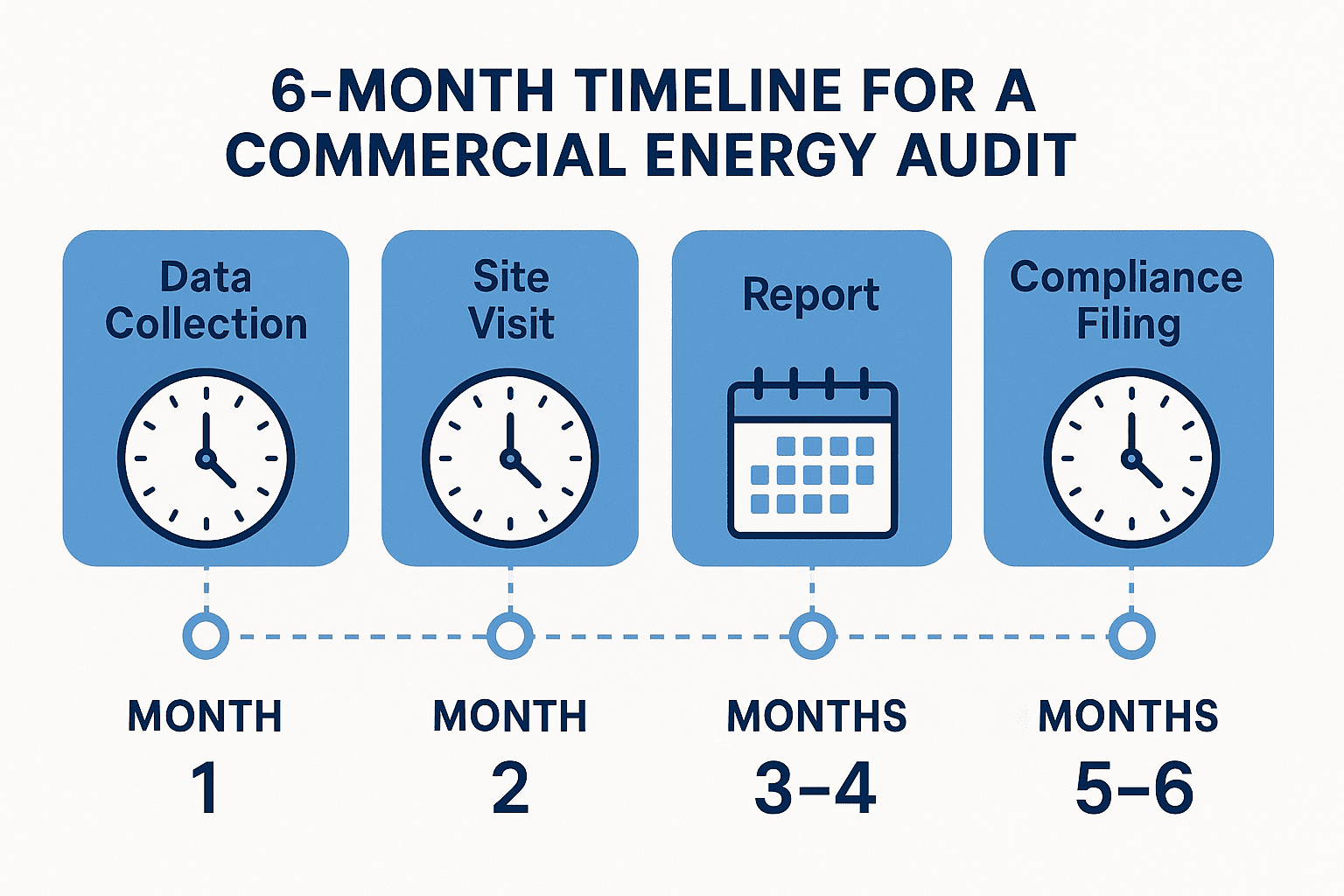
Total: 2 to 5 months in normal conditions. During high-demand periods, that timeline stretches longer.
This is why audit pros recommend starting at least 12 months in advance, especially in the Bay Area, where demand spikes each year.
What Happens If You Wait?
Many building owners delay audits, thinking they’ll “handle it later.” But here’s what often happens:
- Your building gets flagged as non-compliant
- You receive a notice of violation
- Fines start accruing, often per day or per square foot
- You scramble to book a rushed audit with premium pricing
- Your building’s public score drops, impacting tenant value
And if you’re planning a sale, refi, or large tenant renewal in 2026, a missed audit can delay deals or reduce valuations.
How to Prepare: Bay Area Audit Prep Tips
The good news? Preparing for your 2026 audit doesn’t need to be hard. Here are some simple steps to take now:
Check your eligibility: Know which SF/SJ ordinances apply to your building.
Gather past data: Start collecting 12–24 months of utility bills.
Get early bids: Contact 2–3 audit providers for pricing and lead times.
Schedule now: Book your audit 6–12 months before the compliance deadline.
Fix quick wins: Seal leaks, update lighting, and address HVAC issues before the audit.
Don’t Let 2026 Catch You Off Guard
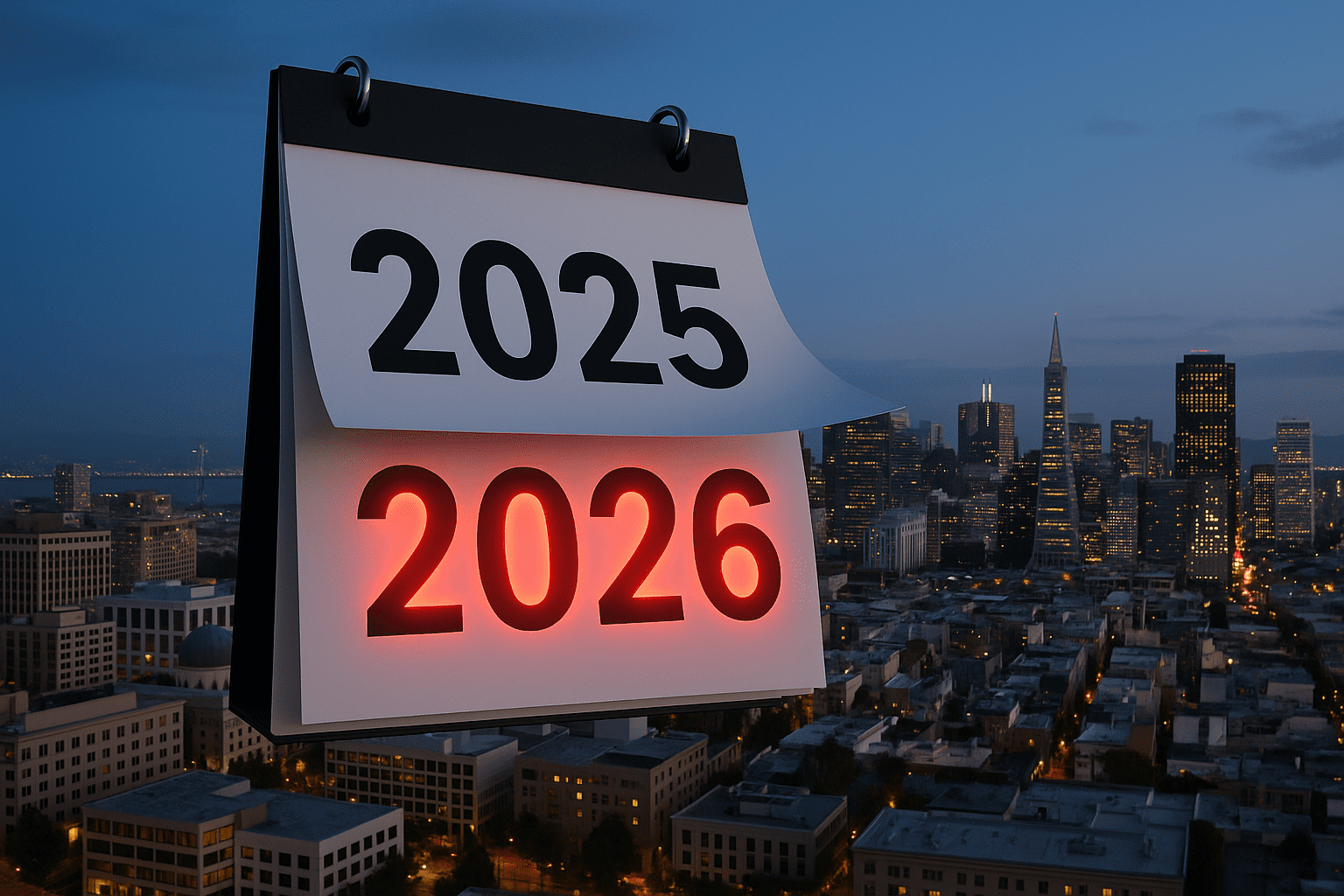
2026 may seem distant—but for commercial building audits, the work starts now.
By acting early, you gain:
- Peace of mind
- Better pricing
- Time to fix issues
A competitive edge with tenants, investors, and regulators
Delays, fines, and stress are optional. Preparation isn’t.


